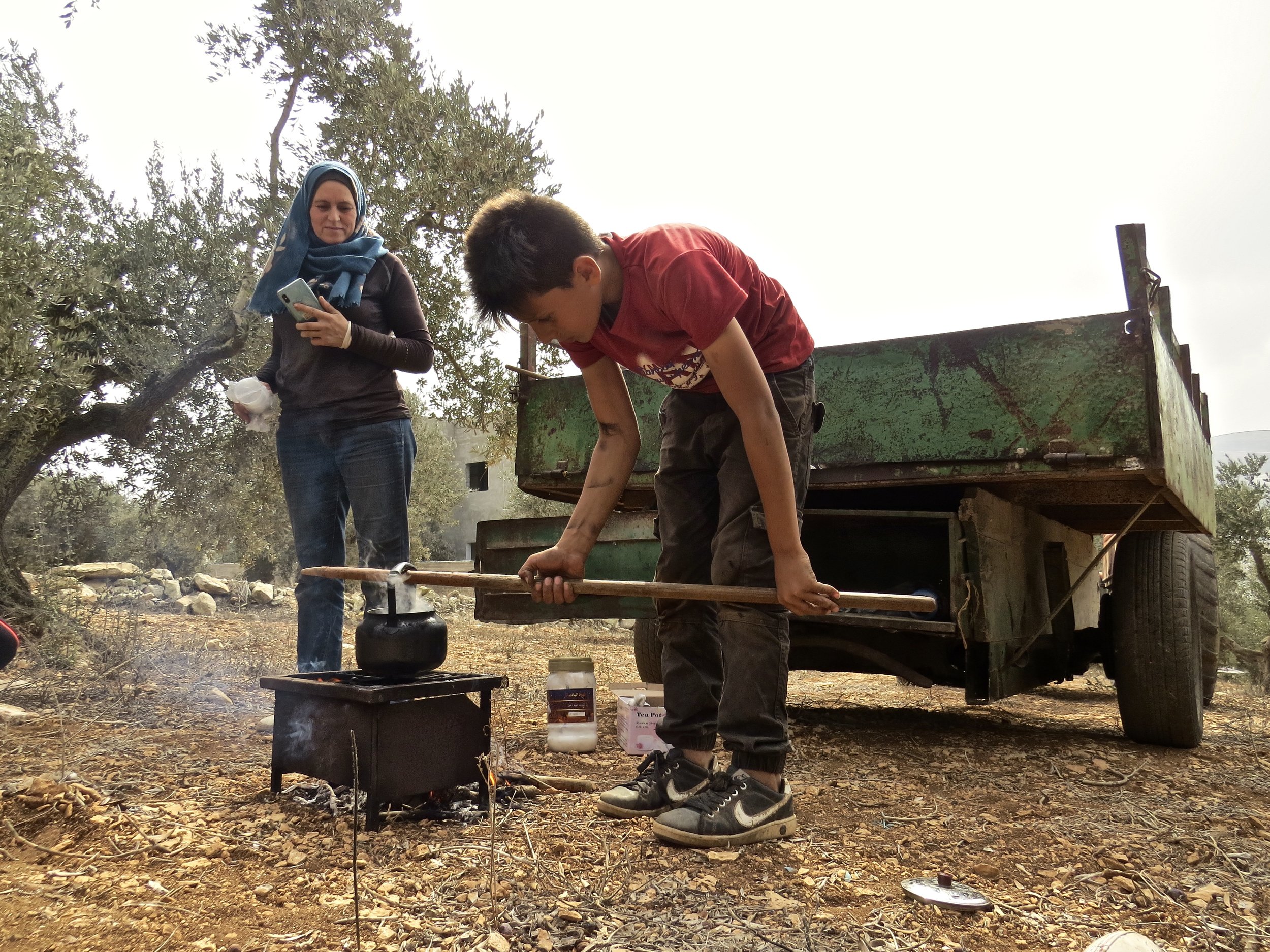Best of Nablus: Olive Picking in Asira
The olive tree is very important for Palestinians, both as a symbol and as part of the economy: olive trees make up two-thirds of all trees in Palestine. Olive harvest season typically begins in September, and TYO’s international staff was invited by Nahawat, a central TYO figure for five years, to join her and her family for a day of olive picking. I’ve always found Nahawat’s presence at TYO to be both uplifting and motivating – her love for TYO is evident in her welcoming smile and the hot cup of coffee or tea that she brings you when you need it most. Knowing the importance of both olives to Palestine and Nahawat to TYO, I felt honored by her invitation to spend a day on the lands that have been in her family for over 20 years.
TYO’s international staff made their way over rolling hills to Asira, a town 15 minutes outside of Nablus, to find Nahawat’s family’s lands. Upon arrival, our staff went right to work smacking the olive trees with baseball bat-size sticks until all the olives fell onto the canvas on the ground awaiting the harvest. After maybe 10 minutes, we completed our first tree and took a well-deserved tea break, similar to a work morning at TYO, but in the middle of several cleared olive trees. Overlooking the surrounding hills and trees, we joked about how our imagined idyllic and peaceful olive picking day was actually a lot more physically taxing than we envisioned.
Nahawat and her family shared their knowledge with us about all of the various quality controls regarding the different types of olives grown, the different qualities of these olives, and their intended uses. Before machinery and collective labor, Nahawat informed us that olive picking season lasted from September to February. Now, thanks to technology it’s only two and a half months. During olive picking season there are three collections: the first for olives for consumption, the second for olive oil, and the third for beauty products, like the olive oil soaps which Nablus is famous for!
Making tea.
Esraa serving maqloubeh.
After our tea break, some of the international staff got right back to work collecting more olives, while the rest of staff spoke with Nahawat’s daughter, Esraa. We learned more about the family, Esraa’s many talents, and her love of work which she inherited from Nahawat, until it was time for lunch. We enjoyed a typical Palestinian dish of maqloubeh with fresh fruit, bread, and yogurt, served underneath the shade of an olive tree with a view of the surrounding hills: a truly replenishing lunch after a labor-filled morning. After lunch, a fellow staffer and I contemplated working on another olive tree before we were beckoned to take yet another break, this time for coffee and chocolate.
Before I realized it, the day was over, the field was cleared entirely thanks to Nahawat’s family, and it was time for a quick tractor ride to Asira’s olive oil press facility. Watching the literal fruit of our labor transform from olives into pure olive oil was far more awe-inspiring than I had imagined it would be. First the olives are separated from the dirt, leaves, and other things that found their way into our collection bags. Then they are cleansed, squeezed and pressed into the best olive oil I’ve ever tasted.
The image of Palestine that Nahawat gifted me that day through inviting me into her home, sharing a day in the life of a farmer, sharing her food, and making sure that I felt safe and welcomed is the image of Palestine I wish all my friends and family could come experience. The olives bring people together, which is partially the motivation behind Nahawat’s invitation to TYO’s international staff members to go olive picking with her family: she hopes that international visitors will learn about the real character and heritage of Palestine through sharing in this experience. As a true ambassador of Palestinian culture, Nahawat hopes to change the perceived image that foreigners have of Palestine and Palestinians. “Zayna, zayhum” says Nahawat, literally: like us, like them. There is no difference between us.
Nahawat and her son Bashar.
Taking the harvest to the olive press.
- Jasmine, Fall 2018 International Intern





